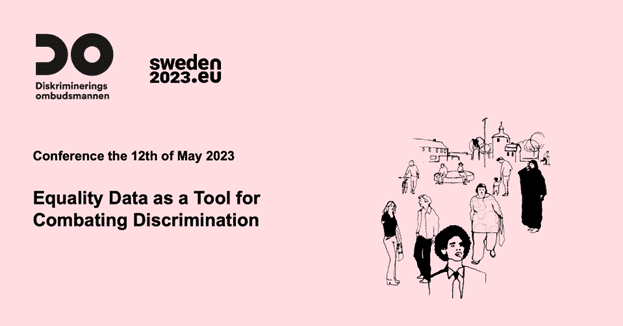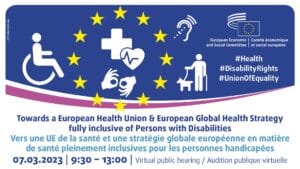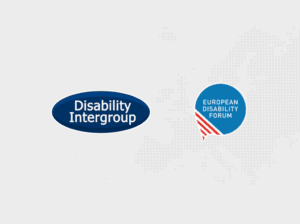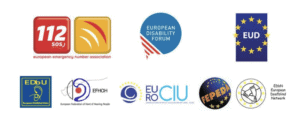On 12th May 2023, EUD attended online the event “Equality Data as a tool for combating discrimination”, organised by the Swedish Equality Ombudsman.
The event gathered stakeholders from several EU Member States’ equality bodies, civil society organisations, academia and policy makers. The conference aimed to promote discussion on how data can be used to combat discrimination in society and to advance equal opportunities for all. The event was divided into three main sessions focusing on different topics such as how to collect and analyse equality data; the role of equality data in combating discrimination; and perspective of the civil society on data combating discrimination.
The event focused on the diffusion of discriminatory practices at all levels of society and on the need to collect data to prevent this. However, Lars Arrhenius, from the Swedish Equality Ombudsman, highlighted that quality data need to be collected by respecting the protection of individuals – as well as their integrity – and in collaboration of affected discriminated groups. In addition, Equality data must be based on a large base of reliable sources, such as legal complaints and dialogue with civil organisations. Mr Arrehenius also stressed that despite the role that equality data can play in the disclosure of equality and life in society, there are still few detailed data on certain groups and more investments at EU level needs to be done.
Furthermore, Ms Rosemary Kayes, Vice-chair of the Committee of persons with disabilities in the UK, highlighted the gap in data collection concerning people with disabilities. Ms Kayes mentioned that people with disabilities have long been an exception to the application of human rights. Consequentially, data collection of persons with disabilities has been focusing mainly on care and medical treatment.
Ms Kayes also recalled that the United Nations Convention on the Rights of Persons with Disabilities (UN CRPD) requires State Parties to recognise that disability is a social construct, and that the impairment should never be the basis for the denial on human rights. Moreover, within the Convention, Article 31 and Article 4(3), clearly mention the use of data collection of persons with disabilities, including deaf people, to promote the implementation of human rights. Article 31 of the UN CRPD calls State Parties to collect data and use them to promote all human rights of people with disabilities such as right to life, right to inclusion in the community and to live independently, and others. Ms Kayes stressed that these two articles provide a basis to address ableism in data collection and persons with disabilities should be included in this process.
EUD welcomes and supports Ms Kayes’ words: data collection is a fundamental tool to promote and shape inclusive policies to advance the rights of deaf people. For this reason, EUD has undertaken initiatives – such as a Data Collection Seminar during its General Assembly 2023 in Stockholm – to raise awareness on the importance of data collection among National Associations of the Deaf. Within its work, EUD is committed to keep expanding its efforts to collect intersectional data on the deaf community and in several areas of life such as employment, education, healthcare and many others.













